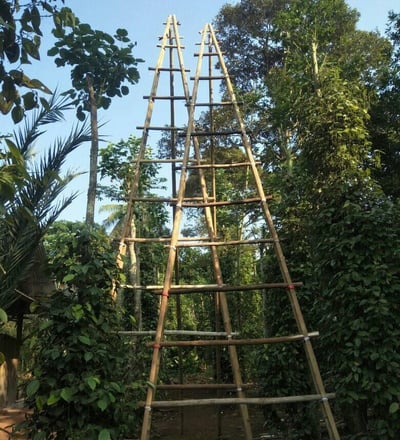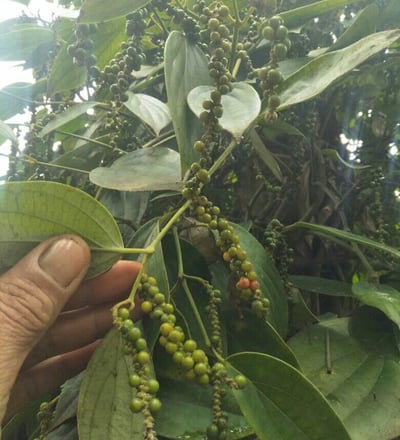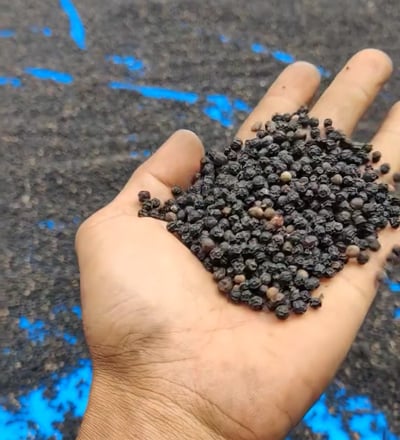Black Pepper
Benefits
Black pepper, often referred to as the "king of spices," is not just a culinary staple but also a powerful natural remedy with a host of health benefits. Rich in antioxidants, black pepper helps fight free radicals, reducing the risk of chronic diseases. It aids in digestion by stimulating the secretion of hydrochloric acid in the stomach, which helps in the digestion of proteins. Piperine, the active compound in black pepper, has anti-inflammatory properties and enhances the bioavailability of nutrients, making them more effective in the body. Additionally, black pepper is known for its antibacterial properties, supporting a healthy immune system, and is often used in traditional medicine to relieve coughs, colds, and congestion.
History in Indonesia
Black pepper has a deep-rooted history in Indonesia, dating back to ancient times when it was one of the most sought-after spices in global trade. Indonesia, particularly the islands of Sumatra and Java, became crucial hubs for black pepper cultivation and export. The spice played a significant role in the spice trade routes, attracting traders from all over the world, including Arabs, Indians, and later Europeans. During the colonial period, the Dutch East India Company (VOC) exploited Indonesia's pepper resources, establishing extensive plantations and monopolizing the spice trade. Today, Indonesia remains one of the world's leading producers of black pepper, with the spice continuing to be a vital part of the nation's agricultural export economy.
Cultivation and Growth
Black pepper thrives in tropical climates and is predominantly grown in regions like Lampung and Bangka-Belitung in Indonesia. The plant is a perennial vine that requires well-drained soil and a humid environment with ample rainfall. It is usually grown on support trees or poles, allowing the vine to climb as it matures. The plant prefers partial shade and a temperature range between 25°C to 30°C (77°F to 86°F). Black pepper plants start bearing fruit after about 3 to 4 years of planting.
Harvesting Season
The harvesting of black pepper in Indonesia typically occurs between June and October, depending on the region and climate conditions. The pepper berries are picked when they are still green and unripe, then they are either sun-dried or machine-dried to become the black peppercorns we know. The drying process causes the outer layer of the pepper berry to shrivel and darken, giving it its characteristic black color.
Shelf Life
Once harvested and dried, black pepper has a relatively long shelf life. Whole black peppercorns can last up to 2 to 3 years when stored in a cool, dry, and dark place, preferably in an airtight container. Ground black pepper, however, has a shorter shelf life of about 6 months to a year, as it tends to lose its flavor and potency more quickly due to exposure to air.
Global Market Impact
Black pepper has had a profound impact on the global spice market, being one of the most traded spices worldwide. It is a key ingredient in cuisines around the globe, from Asian to European and Middle Eastern dishes. Indonesia, alongside Vietnam, India, and Brazil, is one of the top producers and exporters of black pepper, contributing significantly to the global supply. The demand for black pepper continues to grow due to its versatility in cooking, health benefits, and increasing use in the food processing industry. However, the global market is also subject to fluctuations in prices due to factors such as climate change, production yields, and geopolitical issues in producing countries. Despite these challenges, black pepper remains an indispensable spice in the global market, with a strong presence in both culinary and medicinal applications.








